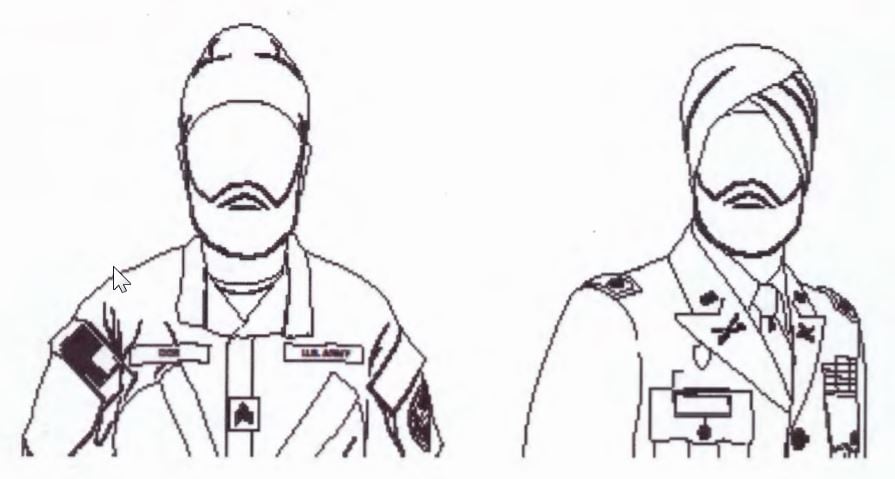A recent update to the Navy’s instruction on religious ministry in the service — which instructs commanders to offer a “religious needs assessment” to sailors arriving at a new duty station — is drawing fire from some enlisted sailors and officers who argue it is unconstitutional.
The Military Religious Freedom Foundation, a nonprofit representing those sailors, says the provision within OPNAV Instruction 1730.1F constitutes an illegal “religious test” because those who don’t accept their command’s offer will be signaling they aren’t religious, which might be used against them.
The Navy says the assessment is optional and that such evaluations have been in place for nearly 30 years. The guidance was updated in November as part of a “periodic instruction review,” according to the service.
It stipulates that “commanders must offer new check-ins the opportunity to complete a religious needs assessment.” The language is a departure from the previous guidance issued in 2012, which states that commanders shall “conduct an assessment of the religious ministry requirements” for their commands.
The service told Navy Times that a template was created about 15 years ago, and commanders can tailor questions for their command based on that example.
RELATED

The guidance also adds a requirement for “spiritual readiness,” which the Navy describes as “the capacity for mission accomplishment that results from the warfighter’s connection to the transcendent.”
It is defined, according to the instruction by: 1) a connection to the divine; 2) participation in a community of faith; 3) sacrifice for the greater good; or, 4) the pursuit of meaning, purpose, value and service.
“Spiritual Readiness is measured in commands by access to a chaplain; service members’ engagement with the Command Religious Program (CRP); and, the training, equipage, facilities and resources of the religious ministry team (RMT), the document states.
Mikey Weinstein, president and founder of the MRFF, disputes the Navy’s characterization.
“Nothing in the prior “Religious Ministry in the Navy” regulation from 2012, OPNAVINST 1730.1E, said anything even close to ‘Commanders must offer new check-ins the opportunity to complete a religious needs assessment,’ ” he said. “Neither did the prior regulation include anything regarding what they are now calling ‘Spiritual Readiness.’
“The prior ‘Religious Ministry in the Navy’ regulation was what you would expect, primarily being about the chaplaincy and its duties,” Weinstein said. “The new regulation, OPNAVINST 1730.1F, completely cancels OPNAVINST 1730.1E, and is an entirely new regulation containing very little about the chaplaincy and its focus being on the commanders.
The means of measuring spiritual readiness are all religious, he said, “indicating that by ‘spiritual’ what they mean is ‘religious.’” he said.
Weinstein, wrote a letter to Secretary of the Navy Carlos Del Toro this month urging Del Toro to rescind the policy, as well as to investigate and penalize those involved in its implementation.
“MRFF is thoroughly repulsed and thunderstruck that this new, wholly unconstitutional regulation has been perniciously promulgated on your watch, Mr. Secretary, and, in so doing, is fatally tearing asunder the good order, morale, discipline, and unit cohesion of the United States Navy,” Weinstein wrote.
According to the Navy, the guidance aims to facilitate celebrations like Passover while sailors are deployed so the command can order the correct number of Seder kits.
“Commanders are required to support the free exercise of religion for personnel under their authority,” the Navy said in a statement to Navy Times. “To do this, they develop a Command Religious Program that facilitates for the religious needs of personnel. For almost three decades, the Religious Needs Assessment is the means by which the Navy identifies those needs and allocates personnel and resources to meet them.”
“However, no Sailor, Marine, or Coast Guardsman is required to provide information about their religious beliefs or lack thereof,” the Navy said. “In conducting the Religious Needs Assessment, Service members are also informed that they are not required to participate.”





